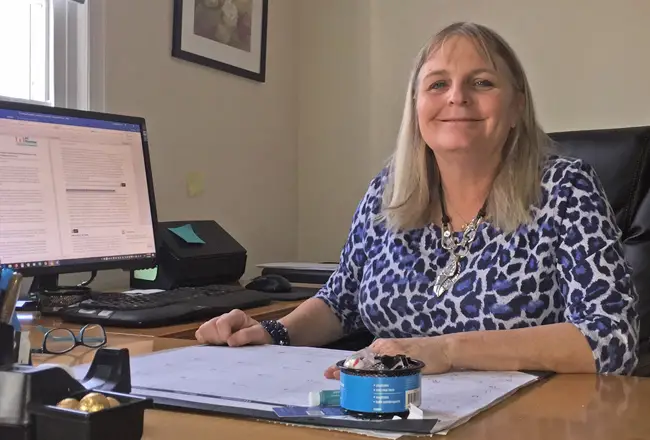When Andrea Sotgiu chose to leave his 28-year career in investment banking to focus on consulting in the small-business sector, he quickly recognized that many companies had problems understanding how to grow their bottom lines.

“When most people start a small business, they have an innate talent somewhere,” said Sotgiu, CEO of Lavan Financial Group in Stamford. “But in terms of being able to run a business and understand how to capitalize it, they don”™t really have that ability. The vast majority of them don”™t get to the place where they can afford a CFO. Ninety-seven percent of the 30 million businesses that are in the U.S. are not what we would call bankable, which means they haven”™t created a risk profile that most banks would look at as a low risk.”
For Sotgiu, whose career included work as director of derivative sales at BNP Paribas and senior vice president at Macquarie Bank, today”™s small-business scene is clouded by too many companies struggling to understand the basics of financing.
“Ninety percent of SBA loans and even more of the traditional loans are turned down because of the underwriting criteria,” he said. “When someone walks into a bank and asks for a loan, there is an algorithm that most banks or most underwriting firms will run. For example, if you”™re running your business from a cellphone and not from a landline or a 411-listed number, then you are considered to have a higher propensity of default. If you are running the business from home and do not have a commercial address, you are considered more likely to default. Statistically, that”™s the case.”
Establishing Lavan Financial Group in September 2015, Sotgiu initially concentrated on helping smaller businesses master the pursuit of financing. He pointed out that between 75 percent to 80 percent of businesses fail primarily because of cash-flow issues.
“We wanted to establish a commercial finance business that would help small businesses access that capital but also create a path to be able to access more affordable capital on an ongoing basis,” he said. “This means looking at the whole of the capital structure.”
However, he quickly realized that many businesses needed help beyond monetary matters, especially smaller operations that lacked in-house talent to cover critical functions. Sotgiu shifted gears to offer a consultancy service focusing on what he dubbed the “four pillars” of business success: obtaining credit to address immediate capital and liquidity issues; creating a financial game plan to anticipate and address long-term capital and liquidity; tapping into digital marketing resources to help expand a business”™ reach, and offering access to a myriad of business services to assist in daily operations.
Sotgiu”™s clients are connected with a national network of professionals; the company has 12 agents spread across the country.
Acting as a middleman for clients, Lavan Financial can arrange loans from lenders at less costly wholesale pricing. “And we don”™t charge clients. We get paid on the back end” by the vendors and lenders he steers business to, Sotgiu said.
Among the resources that Sotgiu provides is access to lenders who can see the potential in a future relationship. “Banks refer us business,” he said. “When we speak to banks, we know they say no. But a lot of the relationship managers we spend time with are able to say, ”˜Not yet.”™”
For Sotgiu, one of the more disturbing aspects of the small-business sector involves startup entrepreneurs who self-finance their endeavor but often wind up stuck in a mess of their own making.
“If you are running under your own Social Security number and not under an EIN (Employer Identification Number), you”™ll never become bankable,” he said. “Most people start a business, unfortunately, on their own credit cards. They beg, borrow and steal, and they ruin their personal credit. They don”™t allow themselves to have the right stepping stone. They”™re going to start to spend money in some shape or form, so it is better for them to spend money knowing they”™re building business credit.”
Since starting Lavan Financial Group, Sotgiu said he has helped “several hundred” companies nationally. He said the company has “substantial revenue” but declined to disclose earnings. “We have some very large clients where we”™ve done some asset-based lending for several million dollars, and we have some smaller clients,” he said.
Sotgiu plans to use his Landmark Square office in Stamford as a launch pad to increase his presence in the Connecticut and Westchester County small-business markets. “We want to help local business and being local allows us to sit down and talk to people face to face,” he said.




















